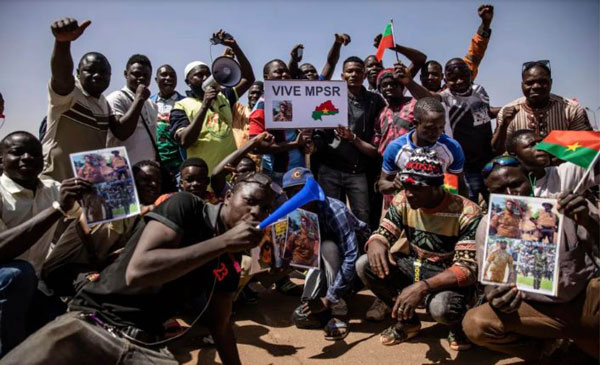Ouagadougou, Burkina Faso,
Mutinous soldiers in Burkina Faso forced democ-ratically elected President Roch Marc Christian Kabore to resign this week, announcing they are now in charge of the West African country that’s under siege by Islamic extremists.
The junta says Kabore failed to stem the jihadist violence that has killed thousands during his time in power. However, there are already new concerns that the coup could ultimately result in more attacks across Burkina Faso.
Here is a look at the risks the country now faces and the challenges ahead for the new military rulers already under international pressure to cede power:
While there is widespread local support for the mutiny, the division between the gendarme forces and army became clear in the takeover. Mutinous soldiers told The Associated Press that the gen-darmes tried to protect Kabore.
There is also the risk of other elements within the military that may not be entirely loyal to coup leader Lt. Col. Paul Henri Sandaogo Damiba, said Neil Thompson, a research analyst in the Middle East and Africa team at the Economic Intelligence Unit.
“While the coup leaders said they represented all branches of the armed forces, factionalism be-tween different units is an issue, as are divisions between the officer corps and ordinary troops,” Thompson said. “The country has a history of muti-nies, and further disruption is a major downside risk.”
Political tensions could give Islamic extremists the ability to stage more attacks, according to Alex-andre Raymakers, senior Africa analyst at Verisk Maplecroft, a risk consultancy.—AP










